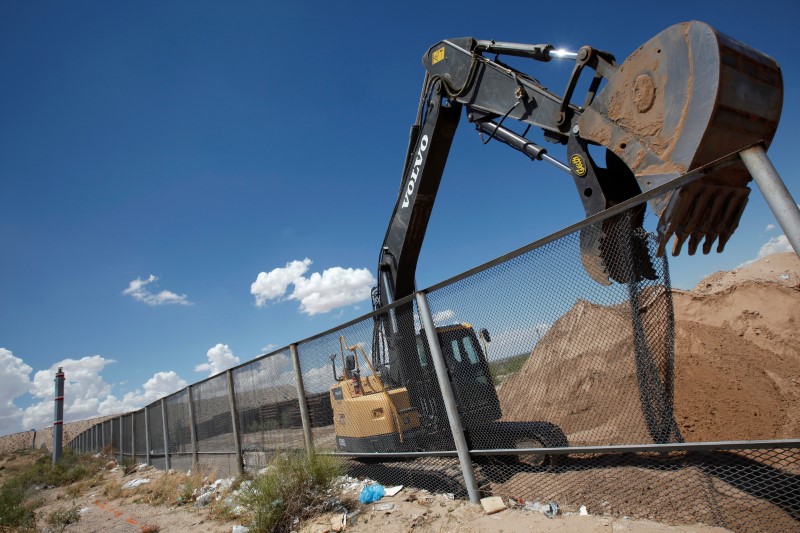By Scott Malone
BOSTON (Reuters) - A Massachusetts county sheriff has proposed sending prison inmates from around the United States to build the proposed wall along the Mexican border that is one of U.S. President-elect Donald Trump's most prominent campaign promises.
"I can think of no other project that would have such a positive impact on our inmates and our country than building this wall," Bristol County Sheriff Thomas Hodgson said at his swearing-in ceremony for a fourth term in office late Wednesday.
"Aside from learning and perfecting construction skills, the symbolism of these inmates building a wall to prevent crime in communities around the country, and to preserve jobs and work opportunities for them and other Americans upon release, can be very powerful," he said.
Hodgson, who like Trump is a Republican, said inmates from around the country could build the proposed wall, described by Trump as a powerful deterrent to illegal immigration.
Trump, who will be sworn in on Jan. 20, insisted during his campaign that he would convince the Mexican government to pay for the wall, though Mexican officials have repeatedly said they would not do so.
Officials in the Trump transition office did not immediately respond to a request for comment.
The United States has a long history of prison labor, with advocates of the idea saying that putting inmates to work can help them learn skills that prepare them for their return to society after completing their sentences. Opponents contend that inmates are not fairly compensated.
The federal prisons system operates some 53 factories around the United States that produced about $500 million worth of clothing, electronics, furniture and other goods in the fiscal year ended Sept. 30, according to its financial statements.
Still, an attorney for the American Civil Liberties Union in Massachusetts said Hodgson's proposal could violate prisoners' rights.
"The proposal is perverse, it's inhumane and very likely unconstitutional," ACLU staff counsel Laura Rotolo said in a phone interview. "It certainly has nothing to do with helping prisoners in Massachusetts or their families. It's about politics."
In response to a request by the Trump transition office, the Department of Homeland Security last month identified more than 400 miles (644 km) along the U.S.-Mexico border where new fencing could be erected, according to a document seen by Reuters.

The document contained an estimate that building that section of fence would cost more than $11 billion.